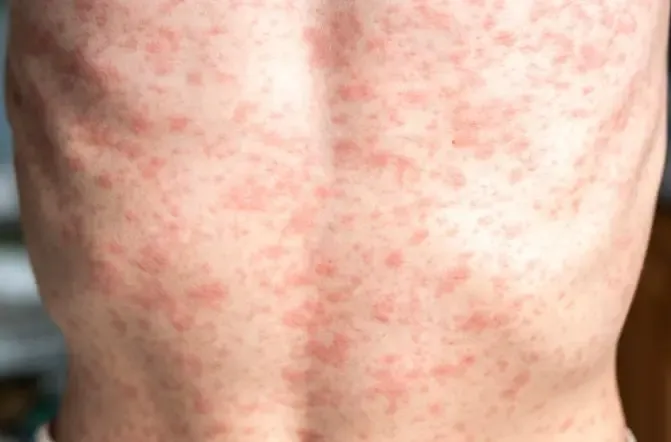Confirmed Measles Cases in Mongolia Surpass 500

Synopsis
Key Takeaways
- Mongolia's measles cases have exceeded 500.
- Most recent cases involve school-age children with only one vaccine dose.
- Parents should ensure two doses of the measles vaccine for their children.
- Measles can lead to severe complications and is highly contagious.
- Vaccination is the best prevention method.
Ulan Bator, April 14 (NationPress) The National Centre for Communicable Diseases (NCCD) in Mongolia has reported an additional 11 cases of measles, bringing the total number of confirmed cases nationwide to 506.
More than half of these recent cases have been reported among school-aged children who have only received a single dose of the measles vaccine, according to a statement from the NCCD.
In light of this situation, the NCCD has urged parents to safeguard their children against this potentially serious illness by ensuring they receive two doses of the measles vaccine.
Measles is an extremely contagious viral infection that spreads through respiratory droplets and direct contact, as reported by the Xinhua news agency.
Typical complications include fever, a dry cough, runny nose, sore throat, and inflamed eyes.
The World Health Organization states that measles can easily spread when an infected individual breathes, coughs, or sneezes, and it can lead to severe illness, complications, and even death.
While measles can infect anyone, it is most prevalent among children.
The virus infects the respiratory system and then disseminates throughout the body. Symptoms include a high fever, cough, runny nose, and a widespread rash.
Any individual who is non-immune (either unvaccinated or vaccinated but without developed immunity) is at risk of infection. Unvaccinated young children and pregnant women face the highest risk of severe complications from measles.
Vaccination is the most effective method to prevent measles infection and its transmission to others. The vaccine is safe and equips your body to combat the virus.
Prior to the introduction of the measles vaccine in 1963 and the implementation of widespread vaccination campaigns, significant epidemics occurred every two to three years, leading to an estimated 2.6 million deaths annually.
In 2023, it is estimated that 107,500 individuals lost their lives to measles, primarily children under the age of five, despite the availability of a safe and affordable vaccine.
In this year, approximately 74 percent of children received both doses of the measles vaccine, and around 83 percent of children worldwide received one dose by their first birthday.
To ensure immunity and prevent outbreaks, receiving two doses of the vaccine is recommended, as not all children develop immunity from the first dose.










